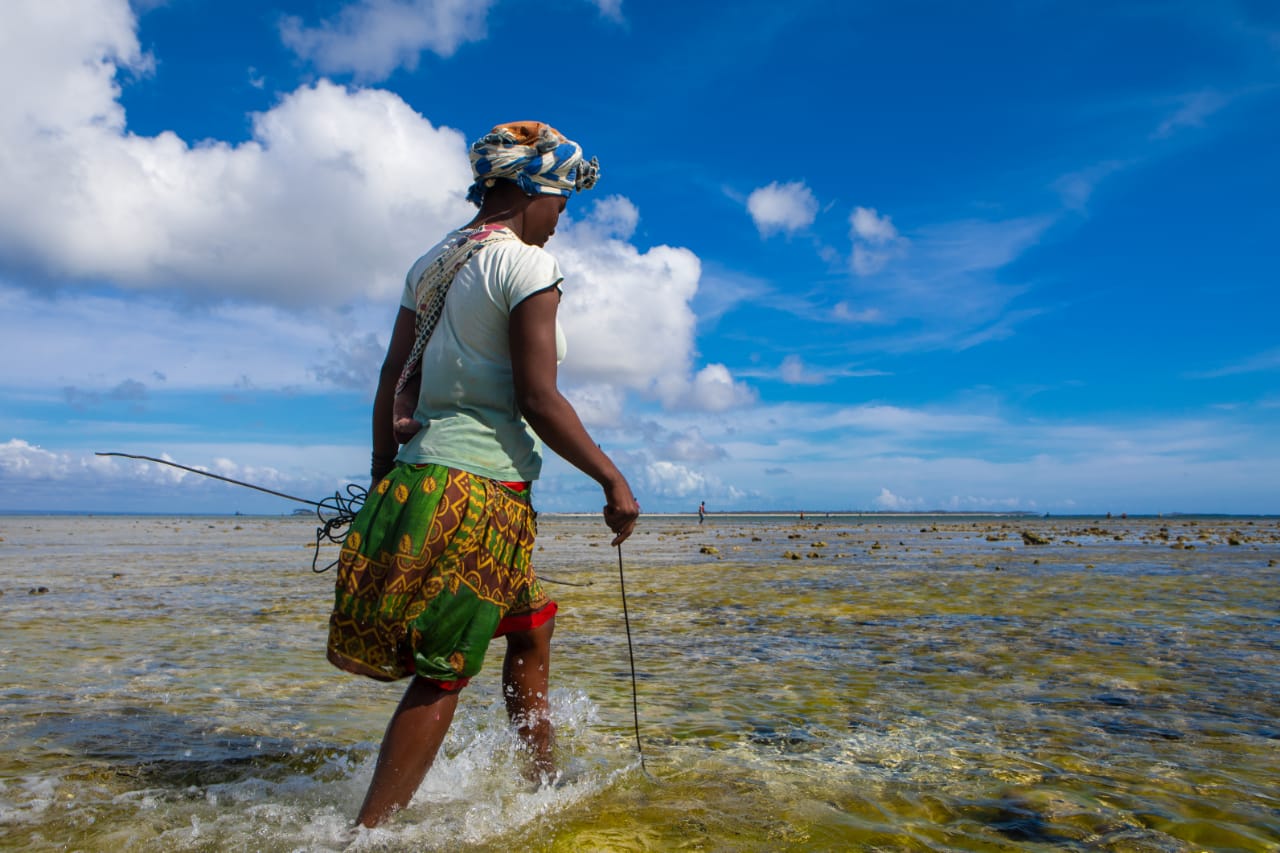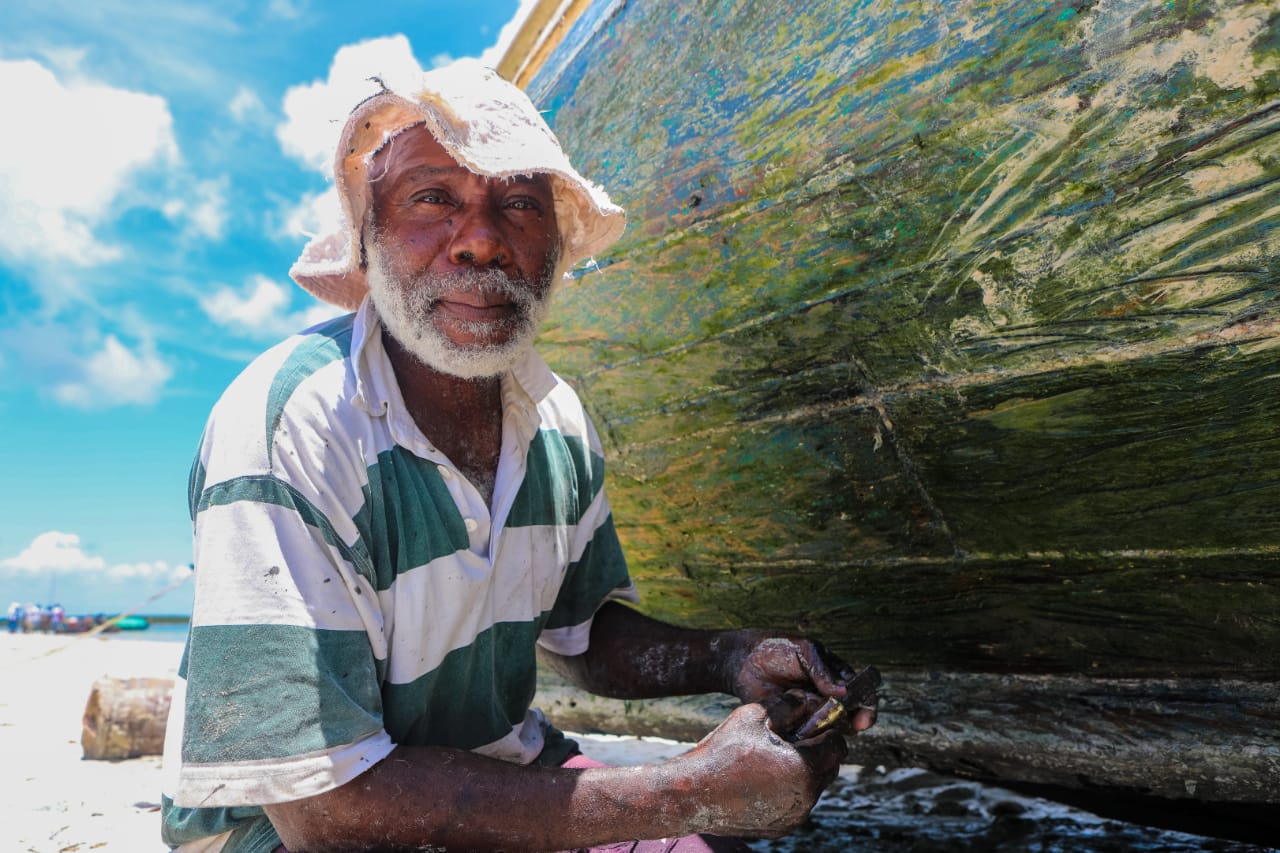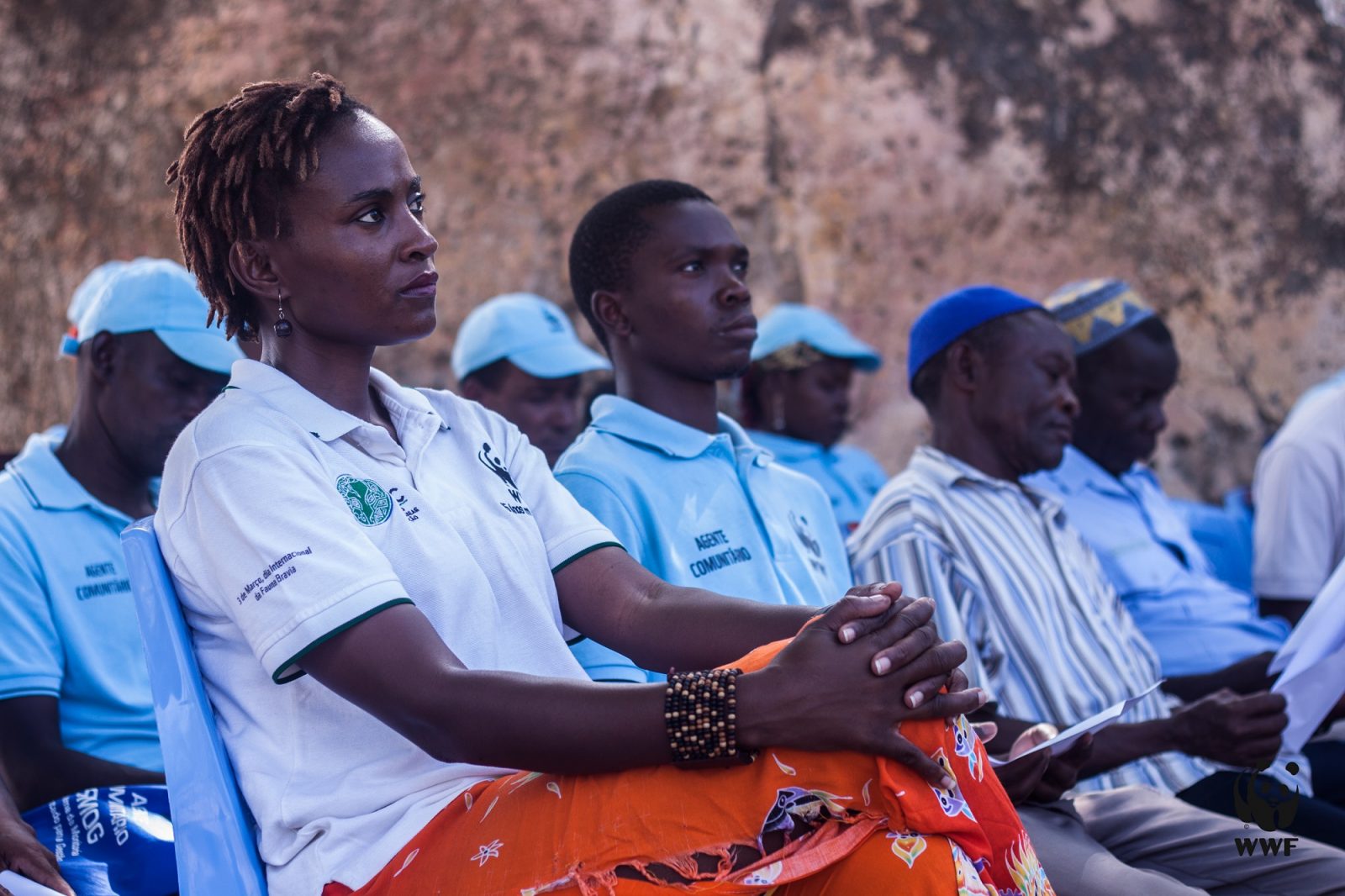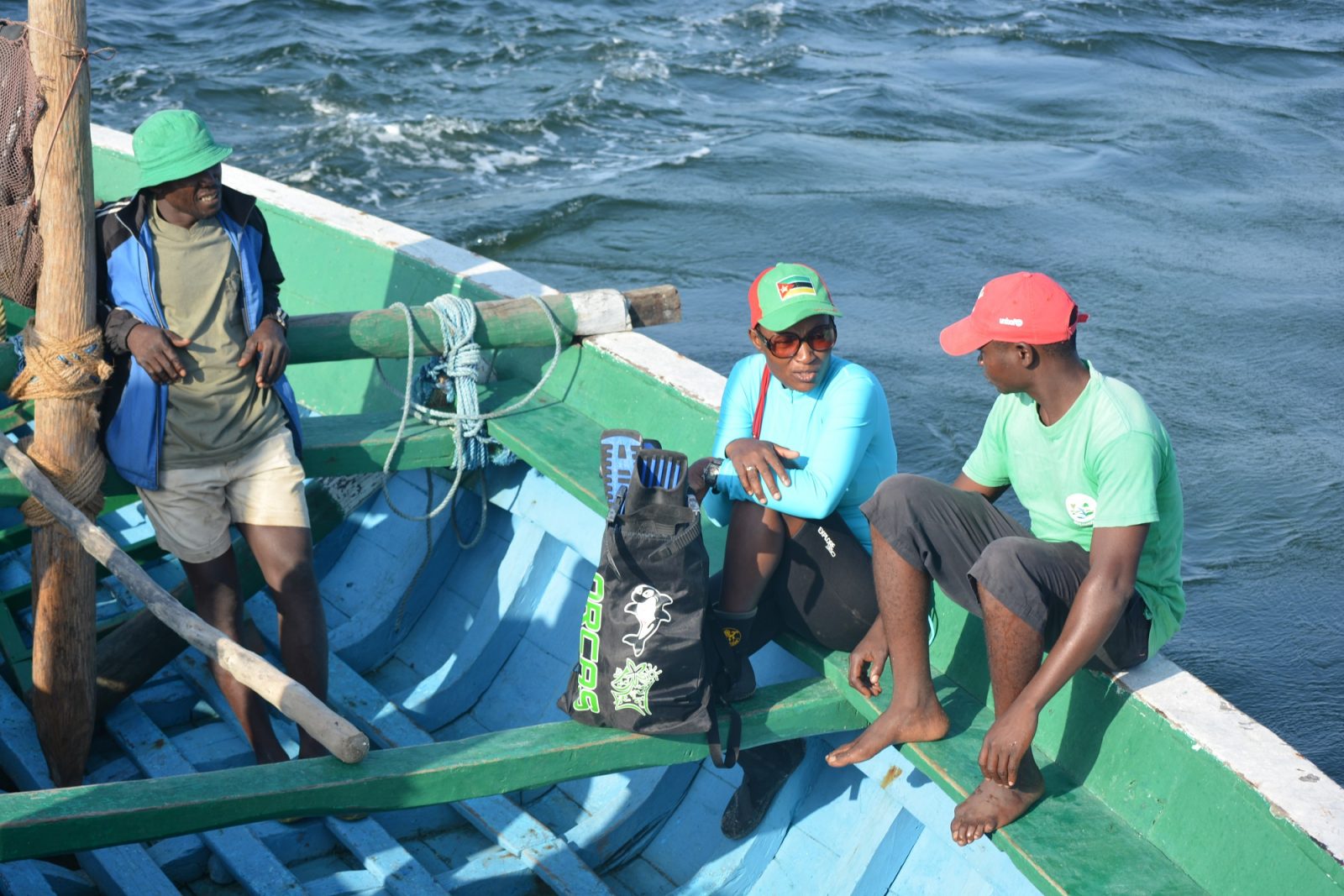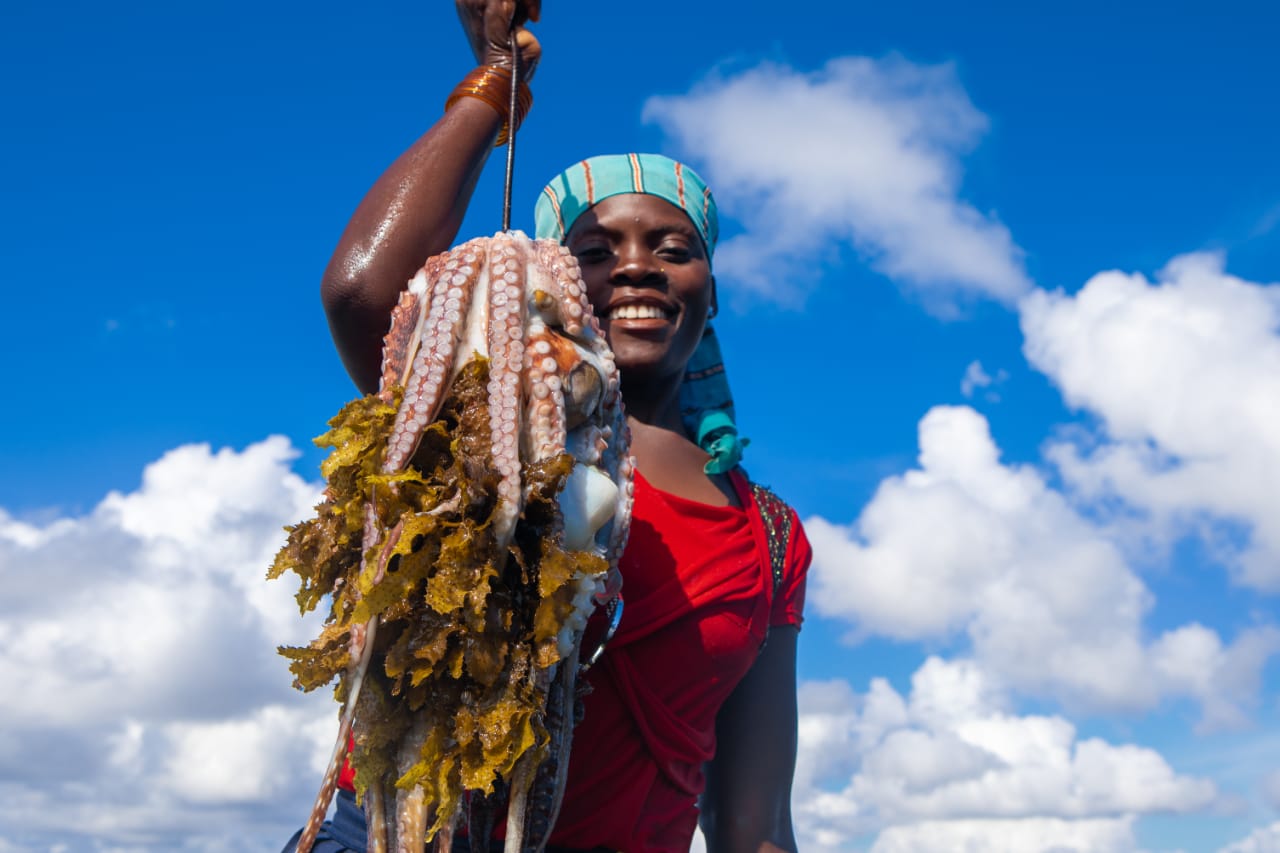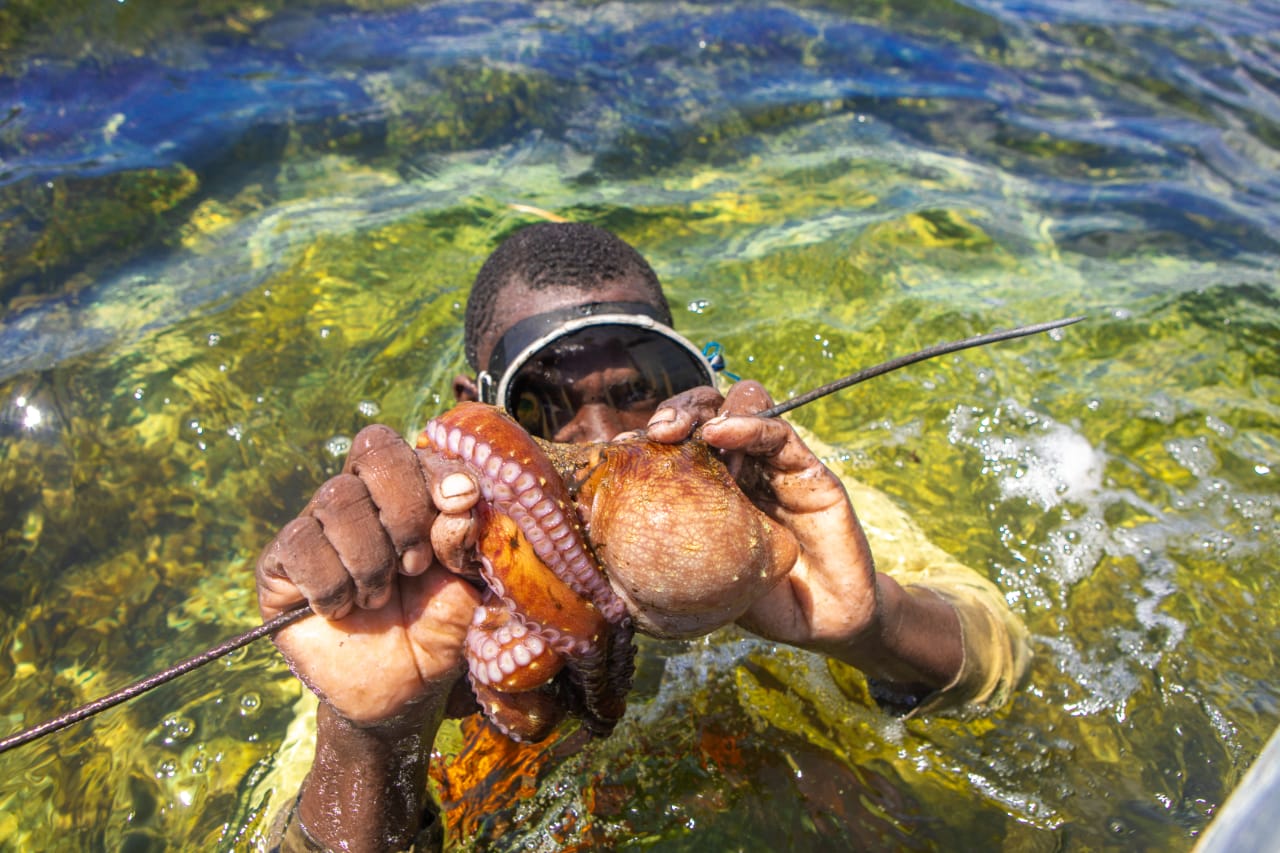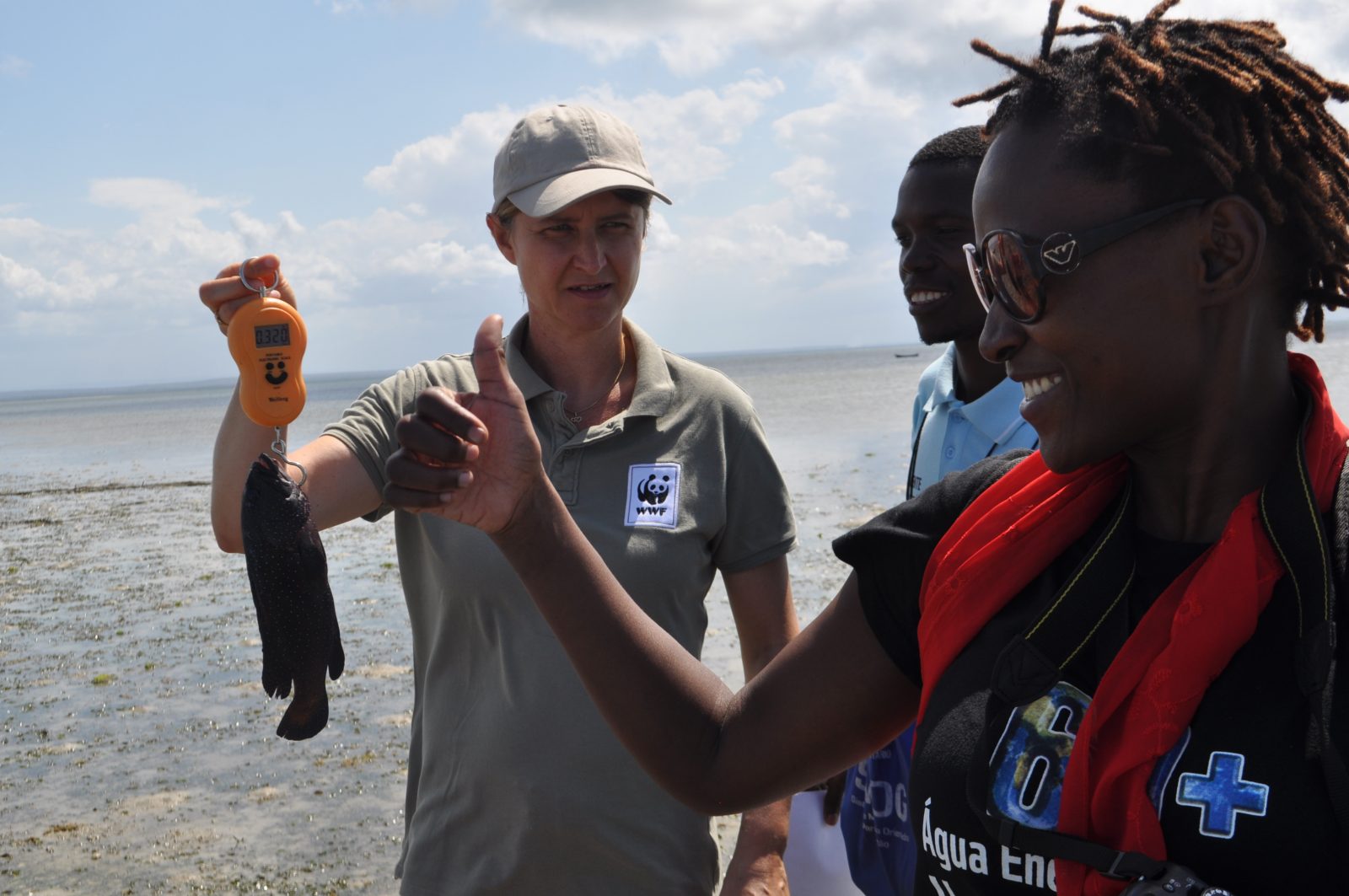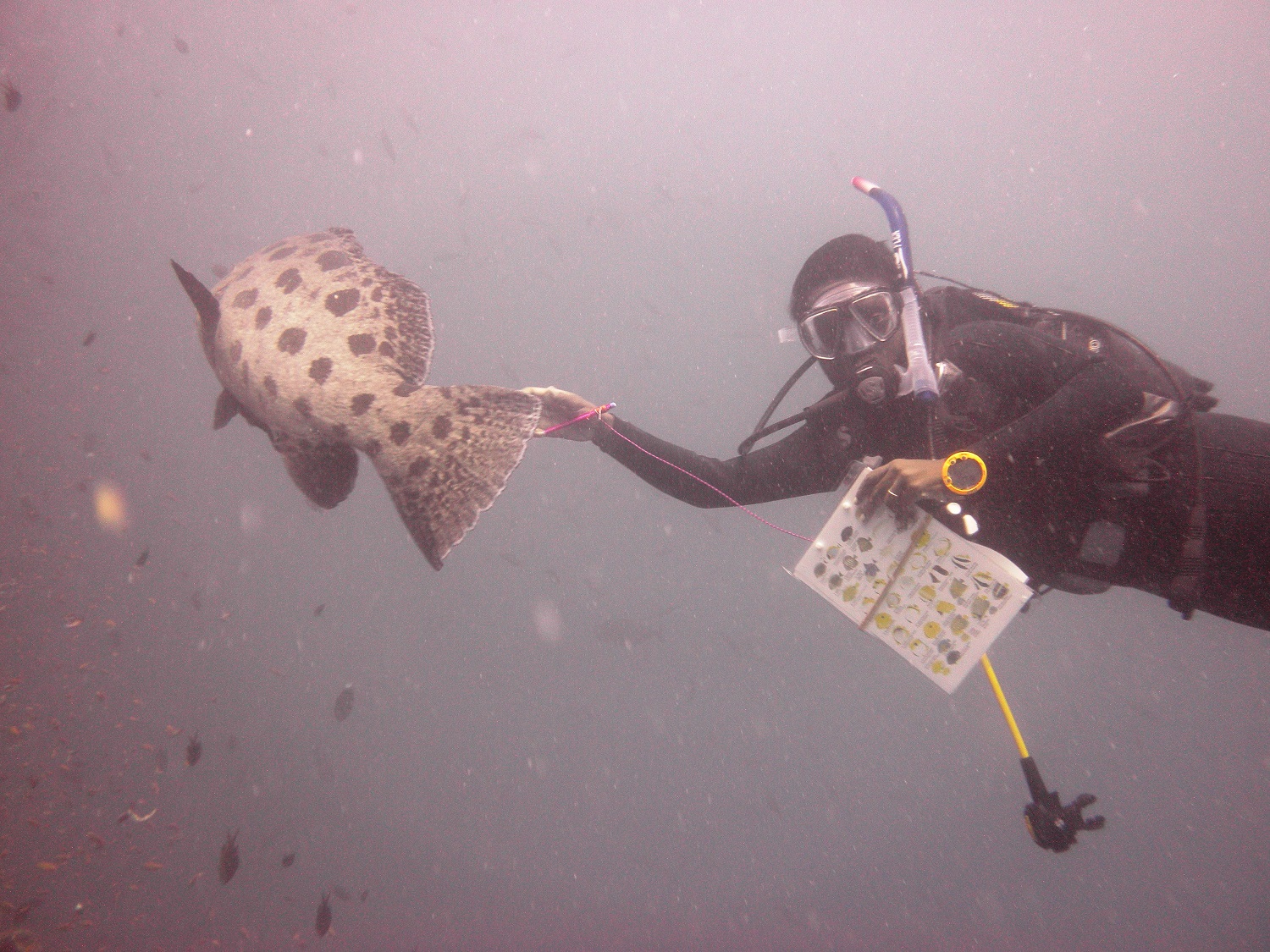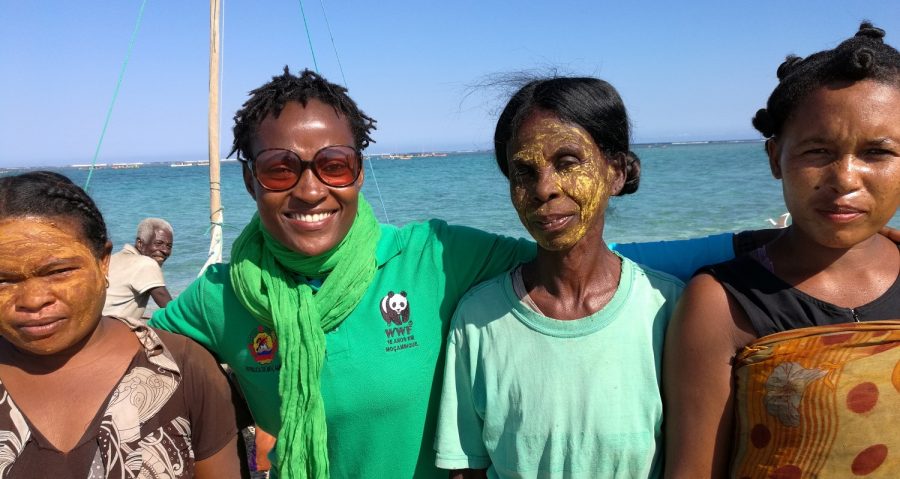What inspired you to contribute to healthy marine ecosystems and sustainable coastal livelihoods?
My passion for the ocean and coastal communities – these are my roots. If fishing communities use marine resources in a sustainable way, they will be able to continue the livelihood of their ancestors. The ocean equates to life for these communities: it means food, breathing, safety and survival. I want to contribute to the sustainable use of Mozambique’s marine ecosystem, which I am able to do through my work for WWF.
WWF-Mozambique’s community projects promote sustainable practices and climate adaptation initiatives implemented and adopted by fishermen themselves. I work together with these small-scale fishers on a daily basis and stimulate their participation, for example by promoting fisher and monitoring associations and combining traditional knowledge with scientific knowledge, in the initiatives. Over the past few years, I have noticed that communities have become more involved in the management of marine resources and coastal ecosystems, rather than just acting as users of these resources. There is a more diverse group of stakeholders promoting sustainable practices and the interest in engaging women and youth in decision-making processes is increasing. Approaches that merge traditional knowledge with scientific knowledge are more accepted now.
On the other hand, population growth, political instability and poverty in Mozambique’s coastal region has complicated conservation efforts. More people go out fishing to feed their families and, at the same time, unsustainable fishing practices, like the use of small mesh nets and poison fishing using toxic plants, are on the rise due to poverty and no alternative livelihoods. Unfortunately, the country’s monitoring and enforcement systems are still not robust enough to control illegal fishing practices.
